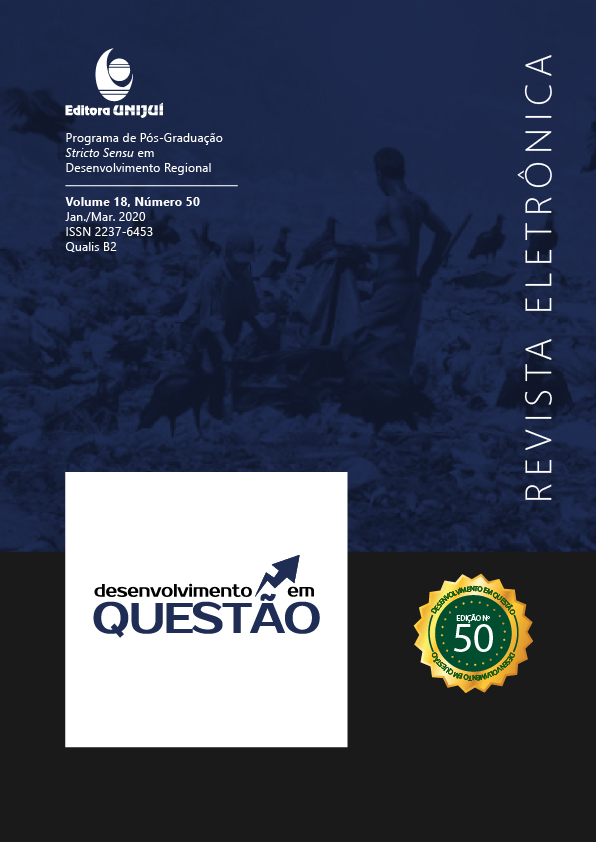O Cluster Automotivo Sul Fluminense: experiência de arranjo produtivo ou arranjo institucional?
DOI:
https://doi.org/10.21527/2237-6453.2020.50.10-23Keywords:
Cluster, Desenvolvimento Regional, Empresas Multinacionais, Indústria automotiva, Sul FluminenseAbstract
Este artigo tem como objetivo analisar o Cluster Automotivo Sul Fluminense (CASF), aglomerado industrial inspirado pela experiência da PSA Peugeot Citroën no Cluster de Empresas de Automoción de Galicia (CEAGA), da Espanha. O cluster está localizado no estado do Rio de Janeiro, mais precisamente na Região das Agulhas Negras, um importante polo da indústria automobilística brasileira. Desde os anos 1990, os municípios da região vêm concentrando importantes investimentos da indústria automobilística a partir de cinco montadoras (MAN Latin America, PSA Peugeot Citroën, Renault-Nissan, Hyundai e Jaguar Land Rover) e de fornecedores nacionais e estrangeiros, que geram cerca de 30 mil postos de trabalho a nível regional. O artigo analisa o processo de criação do cluster e os principais resultados desta iniciativa a partir de uma abordagem qualitativa, com entrevistas de integrantes das montadoras. Como resultado, observa-se que, a curto prazo, o cluster pretende assegurar condições de concorrência para as empresas ao incidir sobre assuntos estratégicos, como a educação, energia, transporte e habitação. A médio/longo prazo pretende fortalecer a competitividade da região, promovendo a cooperação, o intercâmbio de conhecimentos, a aprendizagem e a abertura cultural, aumentando os investimentos e fomentando as relações interfirmas e delas com o poder público.
Downloads
Published
How to Cite
Issue
Section
License
By publishing in Revista Desenvolvimento em Questão, authors agree to the following terms:
All works are published under the Creative Commons Attribution 4.0 International License (CC BY 4.0), which allows:
Sharing — to copy and redistribute the material in any medium or format;
Adaptation — to remix, transform, and build upon the material for any purpose, even commercially.
These permissions are irrevocable, provided that the following terms are respected:
Attribution — authors must be properly credited, a link to the license must be provided, and any changes made must be indicated.
No additional restrictions — no legal or technological measures may be applied that legally restrict others from doing anything the license permits.
Notices:
The license does not apply to elements that are in the public domain or covered by legal exceptions.
The license does not grant all necessary rights for specific uses (e.g., image rights, privacy, or moral rights).
The journal is not responsible for the opinions expressed in the articles, which are the sole responsibility of the authors. The Editor, with the support of the Editorial Board, reserves the right to suggest or request modifications when necessary.
Only original scientific articles presenting research results of interest that have not been previously published or simultaneously submitted to another journal with the same purpose will be accepted.
Mentions of trademarks or specific products are intended solely for identification purposes and do not imply any promotional relationship by the authors or the journal.
License Agreement (for articles published from 2025 onward): Authors retain the copyright to their article and grant Revista Desenvolvimento em Questão the right of first publication.











